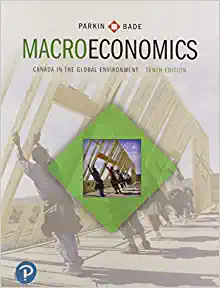

Preventing Resale Preventing resale is easier in certain industries than in others. In industries where resale is initially easy, managers can act to make resale more costly. Flesale is difficult or impossible for most services. If a plumber charges you less than your neighbor for fixing a clogged water pipe, you cannot make a deal with your neighbor to resell this service. Even for physical goods, resale is difficult when transaction costs are high. The higher the transaction costs a consumer must incur to resell a good, the less likely resale becomes. Suppose that you are able to buy a 5G- pound bag of cement (which, in addition to being heavy, is also dusty] for $1 less than the usual price. Would you take the time and trouble to buy the cement and seek a buyer willing to pay an extra dollar, or would the transaction costs be prohibitive? The more valuable and widely consumed a product is, the more likely it is that transaction costs are low enough to allow resale. Some firms act to raise transaction costs or otherwise make resale difficult. If your college requires that someone with a student ticket to a sporting event show a student identification card containing a photo, it will be difficult to resell your lowprice tickets to nonstudents, who pay higher prices. When students at some universities buy computers at lowerthan-usual prices, they must sign a contract that forbids resale of the computer. Disney prevents resale by locals, who can buy a ticket at a lower price, by checking driver's licenses and requiring that the ticket be used for sameday entrance. Governments frequently aid price discrimination by preventing resale. Government tariffs {taxes on imports} limit resale by making it expensive to buy a branded good in a lowprice country and resell it in a high-price country. Under U.S. trade laws, certain brand-name perfumes may not be sold in the United States except by their manufacturers. Similarly, if the countries have very different safety rules, a product sold in one country might not be legally sold in another. However, resale is legal for many products. Imported goods that go through legal but unofficial channels that are unauthorized by the original manufacturer are said to sell in a gray market or parallel market. To make such a transaction unattractive, Nikon provides a warranty on its cameras that is only applicable in the country in which the good is supposed to be sold. Mini-Case Preventing Flesale of Designer Bags During the holiday season, stores often limit how many of the hottest itemssuch as this year's bestselling toya customer can buy. But it may surprise you that websites of luxurygoods retailers such as Saks Fifth Avenue, Neiman Marcus, and Bergdorf Goodman limit how many designer handbags one can buy. For example, the Bergdorf Goodman site won't let you order more than one Prada Lizard Trimmed Nylon Shoulder Bag at $4,190 (darnlj. Some websites explain that they impose limits due to "popular demand.\" The more plausible explanation is that the restriction facilitates international price discrimination. The handbag manufacturers force U.S. retailers to limit the number one person can buy to prevent people from buying large numbers of bags and reselling them in Europe or Asia where the same items in Prada and Gucci stores often cost 20% to 40% more. By purchasing from Prada's U.S. online site, one must agree that the purchase is solely for private household use, that commercial resale or sale outside the United States is not authorized, and that the company reserves the right to reject orders and to limit order quantities










